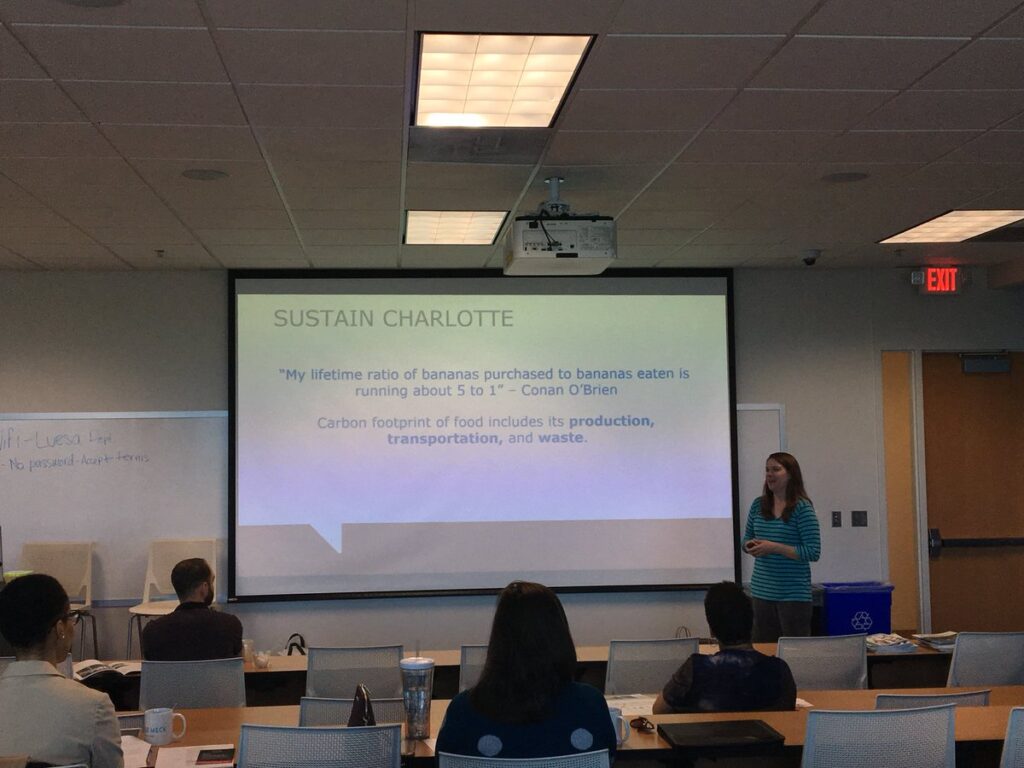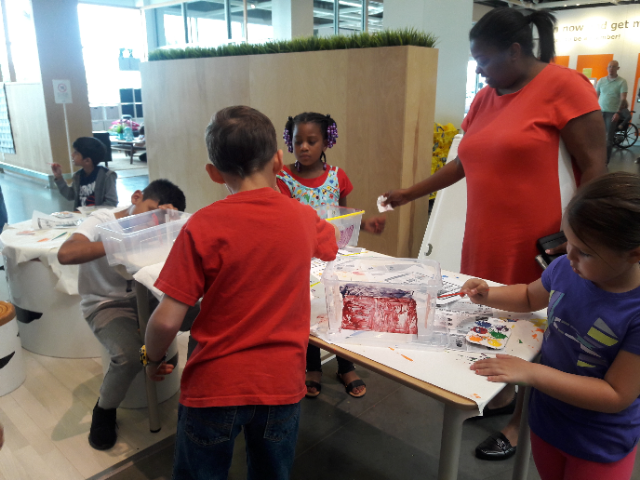Sustain Charlotte partners with Livable Meck and IKEA on food waste events
Did you know that the average American household spends $1,500 on food that ends up uneaten? Sustain Charlotte recently partnered with Livable Meck to co-host a workshop on the topic of food waste and sustainability.

Our program director Meg Fencil explains the connection between food waste, sustainability, and equity.
Household expenses, health, and environment
The median Charlotte household spends 29% of their income on housing and another 22% on transportation. For many households, food is their third-highest expense. When a large percentage of that food is wasted, it places an extra financial strain on the household. That means less money is available for other household needs.
Denada Jackson from Solid Waste Services and David Valder from Crown Town Compost educated the audience about the environmental and health impacts of excessive food waste. When food and other organic material decomposes in the landfill, it generates methane, which is 28 times more potent than carbon dioxide as a greenhouse gas. However, when food is composted and decomposes in the presence of oxygen, it generates carbon dioxide instead of methane. In other words: a composted banana has a much smaller carbon footprint than a landfilled banana.
On Earth Day, we hosted a family workshop at IKEA. More than 30 people of all ages joined us to learn practical sustainability tips and how to compost. Kids decorated small containers (donated by IKEA) as we discussed ways to save food scraps for the compost pile.

Little artists created colorful bins to collect family food scraps for composting.
Earth Day may be over, but it’s not too late to decide what you will do to support a sustainable environment this year!
Thanks for reading!
As a nonprofit, community support is essential for us to keep doing what we do — including providing free articles like this. If you found this article helpful, please consider supporting Sustain Charlotte.
Want to stay in the loop? Subscribe to our weekly newsletter and follow us on Instagram, Facebook, and Twitter.
